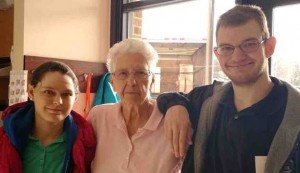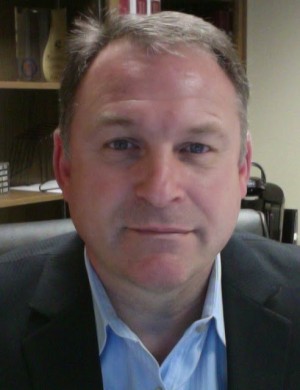The adage, “it takes a village to raise a child” has rarely been more apt than in its application to current educational setting. Schools are more influential in the social development of children than ever before and the need for powerful role models both inside and outside of the classroom is of critical importance. But from whom should they model? A role model should be someone who distinguishes themselves in such a way that others admire, and wish to emulate them. Commonly a role model is taken to be someone like us, just more senior or experienced. Nevertheless there are other people in which we can find admirable qualities, people we would benefit from emulating, perhaps we should cast our gaze wider to find the perfect role model?
This is not news to anyone who has worked in education in recent years, and yet, it remains an area where the opportunities are lost. For years, experts have extolled the benefit for students in connecting with adult role models in schools who can ‘relate to their own unique circumstance’, whether that is something as complex as an adult who understands cultural nuances, or something as modest as someone who simply looks like them.
And yet, it remains a rarity for many students to see themselves in the leadership of their schools. Where does the young black boy see himself in a primary school where teaching staff diversity is limited and almost exclusively female? What of the bilingual immigrant looking to see themselves in the leadership of the school? Or the children, who have questions about their own sexuality, faith or culture, who are unlikely to find adults who believe it is in their best interest to admit to “being just like them when they were growing up.”
Perhaps, even more important than providing encouragement and hope for students who feel marginalized, is the need for those students who are not classified in such groups, to see strong and professional role models who do not look like them, from adults who are not ‘usual suspects’! As the next generation of potential leaders, it is vital that students bear witness to adult interactions that represent the greatest diversity possible — that they see the value of those who play different roles in the school and have an inclusive understanding of who contributes to the schools success. In other words all those in a school can act as a role model.
I am taken back to a visit that I once had to a school in Kansas. I saw many really good things that day — teachers excelling in the classroom, coaches striving to solve problems, support staff patiently helping their students and all of the interactions that you would expect in a truly good school. I left that day, however, awed by a very different type of excellence.
It was at lunch that I met Jessie, Rose Kay and Derrick. Jessie is the team leader and resident ‘grandmother’, and she was masterfully navigating the chaos that is a school lunchroom while mentoring and caring for her co-workers — Rose Kay and Derrick are adults with disabilities.
They were serving lunch, as they do every day, with a positive and upbeat attitude that surpassed just about everyone I met that day. They could not have been more professional, could not have been more helpful or courteous, and could not have been better role models to the students that they served. They loved their work, and were immensely proud to be an integral part of the school day. In combination, they forged a powerful connection with the students, whether that was to a group who, perhaps for the first time, could see themselves as adults, or others who just love to eat at ‘Grandma’s house‘. So on reflection Jessie, Rose Kay and Derrick had the admirable qualities of a role model. The behaviours I, and surely others, would want to emulate. My only regret for that day was to not see them as role models and share with others a potential source of ‘perfect role models’.
So my, perhaps our, endeavour, is to seek out the admirable as in them is a reliable source of ‘perfect role models’ and they may not be the usual suspects.
Dr Adam Holden is the Head of Academic Development for the Department of Education, Childhood & Inclusion

Leave a Reply